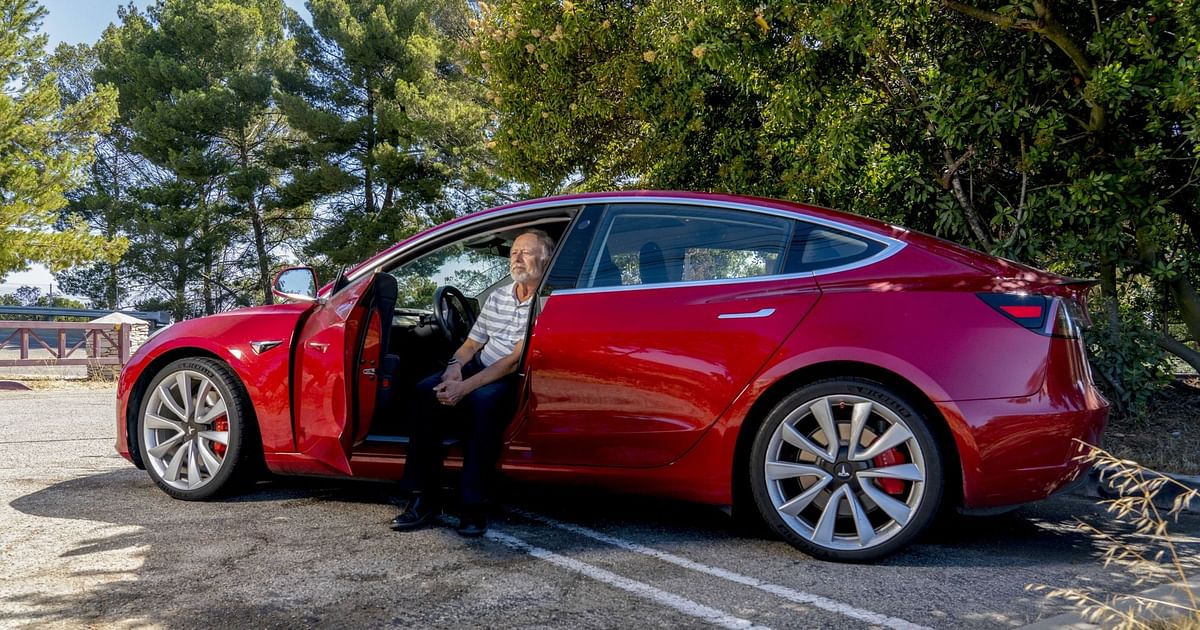[ad_1]
Before it was reported Musk had an affair with Sergey Brin’s wife, which he’s denied; before his slipshod deal, then no-deal, to acquire Twitter Inc.; before the revelation he fathered twins with an executive at his brain-interface startup Neuralink; before SpaceX fired employees who called him “a frequent source of distraction and embarrassment”; before his daughter changed her name and legal gender after his history of mocking pronouns; before an article said SpaceX paid an employee $250,000 to settle a claim he sexually harassed her, allegations he’s called untrue; Musk’s behavior was putting off prospective customers and perturbing some Tesla owners.
The trends have shown up in one consumer survey and market research report after another: Tesla commands high brand awareness, consideration and loyalty, and customers are mostly delighted by its cars. Musk’s antics, on the other hand? They could do without.
Creative Strategies, a California-based customer-experience measurer, mentioned owner frustration with Musk in a study it published in April. A year earlier, research firm Escalent found Musk was the most negative aspect of the Tesla brand among electric-vehicle owners surveyed.
“We hear from Tesla owners who will say, ‘Look, I love my vehicle, but I really wish I didn’t have to respond to my friends and family about his latest tweet,’” says Mike Dovorany, who spoke with thousands of EV owners and potential buyers during his two years working in Escalent’s automotive and mobility group.
Tesla has so far had no trouble growing its way through Musk’s many controversies. The dip in vehicle deliveries the company reported last quarter was its first sequential decline since early 2020 and largely had to do with Covid lockdowns in Shanghai forcing its most productive factory to shut for weeks. Competitors that have been chasing the company for a decade may still be years away from catching up in the EV sales ranks.
Musk’s star power, built in no small part by his activity on Twitter — the same forum where he’s become such a lightning rod — has contributed immensely to Tesla, especially since it’s shunned traditional advertising. His steady stream of online banter, punctuated with the occasional grandiose announcement or stunt (see: shooting a Roadster into space) keeps Tesla in the headlines. During the company’s earlier days, the trolling and glib comments were a feature, not a bug. They allowed Musk to shape media coverage and made him the ringleader for Tesla’s legion of very-online fans.
But after making Tesla and himself so synonymous with one another, Musk has waded into political conflicts, attempted to buy one of the world’s most influential social media platforms and struggled to bat back unflattering coverage of his personal life, putting the company’s increasingly valuable brand at risk.
Jerry James Stone, a 48-year-old chef in Sacramento, California, who teaches his 219,000 YouTube channel subscribers how to make vegan and vegetarian meals, drives a Volkswagen Beetle convertible and plans to go electric with his next car. He isn’t sure yet which model, but certain it won’t be a Tesla.
“Elon has just soiled that brand for me so much that I don’t even think I would take one if I won one,” Stone says. “You have this guy who’s the richest dude in the world, who has this huge megaphone, and he uses it to call somebody a pedophile who’s not, or to fat-shame people, all these things that are just kind of gross.”
According to Strategic Vision, a US research firm that consults auto companies, some 39% of car buyers say they wouldn’t consider a Tesla. That’s not necessarily out of the ordinary — almost half of respondents say they won’t consider German luxury brands. But Tesla does lag more mass-market brands: Toyota, for example, is only off the shopping list for 23% of drivers.
[ad_2]
Image and article originally from www.bqprime.com. Read the original article here.

